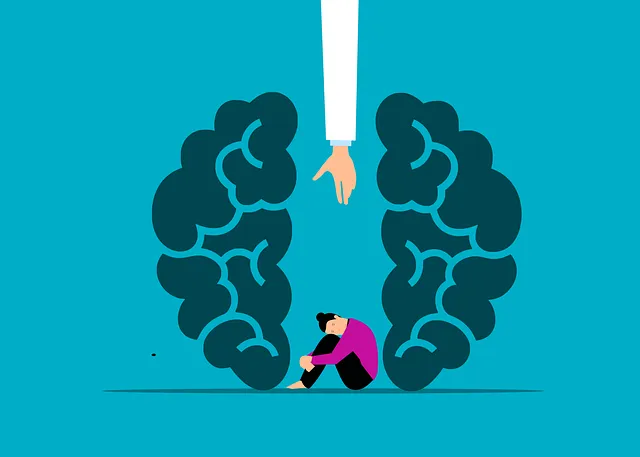The Wheat Ridge Kaiser Permanente mental health department number serves a diverse population, emphasizing cultural sensitivity in care. By recognizing and respecting varied emotional healing processes, personalized journaling exercises create safe spaces. This approach improves therapeutic outcomes, aligns with client needs, and promotes trust through effective communication. Tailoring workshops and training to specific cultures enhances coping strategies and overall department success.
Cultural sensitivity is an essential aspect of providing effective mental healthcare, especially within diverse communities. This article explores the significance of cultural competency in the Wheat Ridge Kaiser Permanente mental health department, serving a vast and varied population. We delve into understanding cultural diversity, its impact on treatment, and strategies for improving patient outcomes through sensitive communication and tailored therapy. Discover how training and resources specific to this location enhance cultural sensitivity, ensuring quality care for all.
- Understanding Cultural Diversity in Mental Healthcare
- Impact of Cultural Sensitivity on Treatment Outcomes
- Communicating Effectively Across Cultures
- Incorporating Cultural Practices into Therapy
- Training and Resources for Kaiser Permanente Wheat Ridge Department
Understanding Cultural Diversity in Mental Healthcare

In today’s diverse society, cultural sensitivity within mental healthcare is more crucial than ever before. The Wheat Ridge Kaiser Permanente mental health department number serves a growing population with varying cultural backgrounds, beliefs, and values. Understanding and respecting this diversity are fundamental to delivering effective care that aligns with individuals’ unique needs and experiences. Cultural competence involves recognizing that emotional healing processes can differ significantly across cultures, shaped by historical, social, and religious factors.
By embracing mind over matter principles, mental healthcare providers can foster a safe and supportive environment where clients feel comfortable exploring their mental wellness through personalized journaling exercises. This guidance encourages individuals to articulate their thoughts, emotions, and experiences in a way that resonates with their cultural identity, ultimately enhancing the therapeutic process and promoting positive outcomes.
Impact of Cultural Sensitivity on Treatment Outcomes

Cultural sensitivity plays a pivotal role in shaping the effectiveness of mental healthcare services. When practitioners understand and appreciate the diverse cultural backgrounds of their patients, they can tailor treatments to meet individual needs, ensuring better engagement and outcomes. This is particularly relevant in institutions like Wheat Ridge Kaiser Permanente’s mental health department, where a heterogeneous patient population may seek support.
Integrating cultural sensitivity into practice promotes a sense of safety and trust between patients and healthcare providers. It encourages open communication, fosters social skills development, and enhances the delivery of evidence-based practices. For instance, offering Stress Management Workshops Organization tailored to specific cultural contexts can empower individuals with effective coping strategies, improving their overall well-being. This personalized approach not only benefits individual patients but also contributes to improved treatment outcomes for the entire patient population served by the department.
Communicating Effectively Across Cultures

Effective communication is a cornerstone of successful cultural sensitivity in mental healthcare. It involves actively listening and understanding an individual’s cultural context, values, and beliefs to ensure tailored support. At Wheat Ridge Kaiser Permanente’s mental health department, professionals are trained to navigate diverse backgrounds, recognizing that each patient brings unique experiences and perspectives. This training fosters emotional intelligence, enabling providers to create a safe, inclusive environment where individuals feel heard and respected.
Cultural competency goes beyond words; it encompasses non-verbal cues and an awareness of unspoken rules varying across cultures. By integrating healthcare provider cultural competency training into their practices, the mental health department at Wheat Ridge Kaiser Permanente equips staff with tools to adapt communication methods, ensuring every patient receives comprehensive care that respects and embraces their cultural identity. This approach not only enhances therapy outcomes but also promotes effective stress reduction methods, catering to a wide range of patients from diverse communities.
Incorporating Cultural Practices into Therapy

Incorporating cultural practices into therapy sessions is a vital aspect of providing inclusive and effective mental healthcare, especially within the Wheat Ridge Kaiser Permanente mental health department number. Recognizing that each individual comes from a unique cultural background, therapists can tailor their approach to respect and honor these differences. This involves learning about and understanding the patient’s cultural beliefs, values, and practices, which can significantly impact their emotional regulation and overall mental wellness.
By integrating cultural sensitivity, therapists can offer more personalized treatment plans. For example, stress reduction methods may be adapted to include mindfulness techniques or relaxation practices that align with the client’s cultural traditions. Moreover, mental wellness coaching programs can be developed to address specific challenges faced by individuals from diverse backgrounds, fostering a supportive environment that promotes emotional well-being and enhances therapeutic outcomes.
Training and Resources for Kaiser Permanente Wheat Ridge Department

The Wheat Ridge Kaiser Permanente mental health department prioritizes cultural sensitivity through comprehensive training and resource allocation. The department’s staff receives regular education sessions focused on Mind Over Matter Principles, fostering an environment that respects diverse cultural backgrounds. These sessions not only enhance Self-Awareness Exercises but also equip professionals with the skills to deliver personalized care, aligning with the department’s commitment to burnout prevention.
Additionally, Kaiser Permanente Wheat Ridge invests in ongoing professional development programs and offers a wide array of resources tailored to meet the unique needs of its culturally diverse clientele. By integrating these initiatives, the mental health department strives to create an inclusive space where individuals from various cultural backgrounds feel understood, valued, and supported throughout their journey towards mental well-being.
Cultural sensitivity is a cornerstone of effective mental healthcare, especially within the diverse population served by Wheat Ridge Kaiser Permanente’s mental health department. By understanding cultural diversity and incorporating cultural practices into therapy, we can significantly improve treatment outcomes. Effective communication across cultures, as highlighted in this article, ensures that every patient receives care tailored to their unique background. The resources and training provided by Wheat Ridge Kaiser Permanente are invaluable steps towards ensuring all patients feel respected and supported, ultimately enhancing the overall mental health and well-being of our community.






